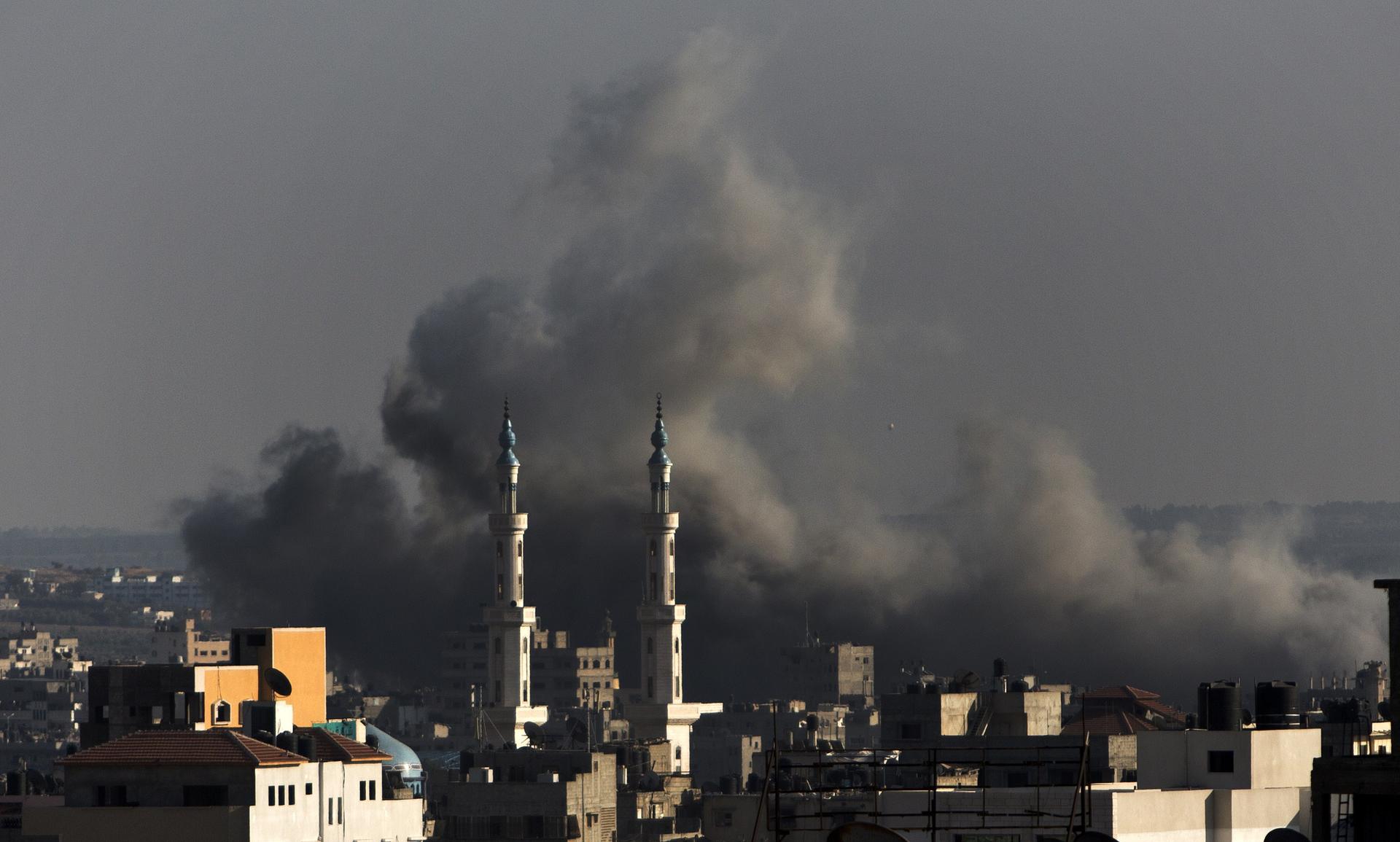Ceasefires are a strange business
Smoke billows following an Israeli military strike on Gaza City on August 8, 2014.
Update: Israel and Hamas on Sunday said they agreed to a new 72-hour ceasefire proposed by Egypt.
JERUSALEM — If Palestinians and Israelis harbored doubts about the distinction between a ceasefire and an armistice, they were rapidly disabused of them this morning.
At a few minutes to eight, sirens wailed across southern Israel, announcing incoming rockets.
In eastern Gaza, families who had ventured back to their homes after a ceasefire began 72 hours earlier fled once again to precarious UN-run shelters.
The ceasefire — a temporary cessation of fighting — officially ended at 8 a.m., by which point it was already clear that no lasting truce had been achieved.
Israel's Home Front Command appeared to have been caught off guard by the incoming fire. Two days earlier, it issued orders for all of Israel's southern communities to return to normal activity, including public gatherings and, significantly, not including the operation of bomb shelters.
Early Friday, it was forced to backtrack, drawing a rare public reprimand from former Israeli Security Services director Yuval Diskin, who in the early afternoon tweeted: "Still trying but cannot understand why the Chief of Staff and the Head of the Southern Command rushed to call for residents to return to their homes in the Gaza border region before 72-hour cease-fire ended."
In Gaza, the first casualty after the resumption of combat was Ibrahim al-Dawawseh, a 10-year-old boy.
In Israel, a home in the city of Sderot was struck by an incoming rocket and, in a separate incident, two men were wounded by a direct rocket hit. Some sixty rockets were launched at Israel in the first 12 hours of non-ceasefire.
Both sides re-engaged, but not with the intensity of the first month of war — as if both were weary but had not found a way to end the fighting. The strikes were less frequent.
Rumors emanating from the Cairo talks aimed at ending the conflict indicated that the major point of contention remained the siege on Gaza, now in its seventh year. Hamas demanded the opening of all border crossings, under its supervision. Israel and Egypt appeared inclined to accept the demand — but, joining forces against the Islamist group both view as a major threat, only if the Palestinian Authority and not Hamas were put in charge of the frontiers.
More from GlobalPost: Egypt isn't doing much to help Gaza
For Hamas, which announced it would resume combat if Israel did not accede to its demands, such an arrangement would be a humiliation it sees no reason to accept.
Israel's limbo was in full view at Kibbutz Nirim, an agricultural village and one of the bordering communities that has been hard-hit by rockets — and almost deserted by its inhabitants.
Out of 400 residents, 300 fled during the month of war. While the ceasefire seemed to hold, the remaining residents organized a welcome back party for the expected returnees, many of them families with young children.
"We indeed had [a] welcome back party," Adele Raemer, an English teacher, reported. "But not everybody came back. Some of them did."
About 100 people had returned, leaving half the kibbutz, 200 people, still finding refuge elsewhere.
"You know, it's still scary here," Raemer said. "We had a code red [incoming rocket alarm] just before the party started! There's still stuff flying around."
Every day, reporters and producers at The World are hard at work bringing you human-centered news from across the globe. But we can’t do it without you. We need your support to ensure we can continue this work for another year.
Make a gift today, and you’ll help us unlock a matching gift of $67,000!
